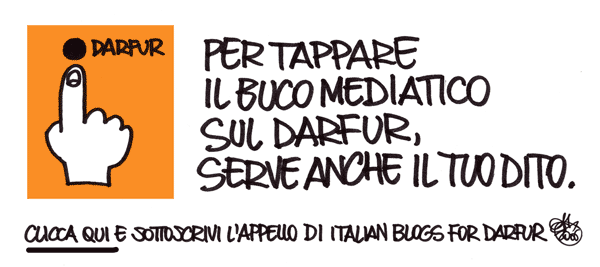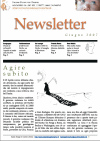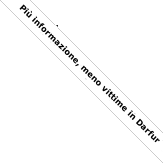#Sudan Revolts - di Yousif Mubarak
Ripropongo qui l'articolo di Yousif Mubarak e Sara Elhassan, pubblicato nella rubrica Mondo di MPNews. Ho contattato Yousif, economista sudanese e attivista, per il tramite di una militante sudanese, con la quale seguivo gli ultimi sviluppi delle proteste studentesche a Khartoum, ancora ignorate dai media mainstream. Questo il resoconto e l'analisi proposta. M.A.
June 20, 2012 (Khartoum)--The last four days have bore witness to continuous anti-regime protests in Sudan.
The struggles of the Sudanese people are well documented: oppressed by a totalitarian regime, bereft of basic rights, and plagued with poverty; the Sudanese have protested since the onset of the Arab Spring. Protests, which started on January 30, 2011 and have continued over the last year and a half, have not been sustained due largely to the uncertainty surrounding the separation of South Sudan, as well as poor organization and ruthless government crackdowns.
This latest wave of protests, however, feels different. Motivated by economic shocks, protestors, youth and university students, are vowing to continue until the regime is toppled, even in the face of brutal resistance by security forces. A mass protest to do just that has been planned for June 30, 2012, the 23rd anniversary of the National Congress Party’s (NCP) rise to power in the country. Grappling with an annual inflation rate that reached 30.4% as in May 2012, the Sudanese can wait no longer.
The Most Recent Protests
The latest round of protest began on the evening of June 16, 2012, when female residents at the University of Khartoum staged an impromptu demonstration in opposition to increased meal and transportation prices. A week earlier the Khartoum State Governor had increased transport prices by 35%.
The male students quickly joined forces and together they moved the protest off-campus, marching up to Jamhuriya Street where they were met by police forces. After dispersing the protest, the police raided the university dorms, beating and harassing female occupants. News of these events spread across the university the following morning, sparking a university-wide protest in solidarity. This demonstration was similarly quelled, with the police raiding and for a short time invading the main campus and dormitories.
Since then, protests have not continued, without end. Today (June 20, 2012), the University of Khartoum entered its fourth day of demonstrations, across its three branches in the Khartoum tri-state area. Over these four days, the revolt has spread to other universities, notably the Southern wing of the University of Sudan, Al-Ahliya University in Omdurman, and Bahri (previously Juba) University in Khartoum North, as well as several universities outside of Khartoum State including in Shendi, Obeid and Gezira. In all these protests, loyalist NCP students have joined with the security forces and assaulting protesters with metal rods, machetes, knives, and even swords.
Locals have now joined the revolt, spurred by the student uprising, fueled by economic hardship, and provoked by the government’s ‘fiscal austerity’ program. The program, which was announced on Monday June 18, 2012 by President Omar al Bashir, includes a 60% and 40% increase in the respective prices of fuel and sugar and yet another tax hike. Protests by locals have taken place over the last few days in several of Khartoum’s districts including AlKalakla (AlQubba), Kober, Burri, Riyad, Al-Manshiya and in Omdurman, where on Monday huge protests erupted in the main market. Merchants and locals unwavering in their chants of “till when will we live in debt” were met by possibly the sourest police brutality and mass arrests to date.
Today, protests markedly intensified encompassing more universities – AlTighana, Western wing of University of Sudan, the Higher Banking Institute and Blue Nile University; as well as major streets in Khartoum - AlAarda, AlArbaeen, Mak Nimir, Jamhuriya. Othman Digna and Atbara; and districts – AlThawra and Soba.
Sudan and the Arab Spring
Many have debated Sudan’s perceived reluctance to join the Arab Spring, particularly since the country’s situation has arguably been the most conducive to a revolution. Many theories have been proposed and range from hopelessness and helplessness to disillusionment with the country’s weak opposition.
In reality, the Sudanese people are resilient; continuous hardships and difficult experiences have given them the ability to endure, and their strong social fabric equips them to absorb more than most. As history has shown, when they decide that “enough is enough” then it overwhelmingly is; and it seems that decision has now been made.
The country’s economic condition, which has made for a dismal standard of living, has been the primary breaking point. The majority of Sudanese will not willingly continue subsidizing a regime that has plundered 60 billion US dollars in oil revenue during the current self-inflicted fiscal crisis. They are unwilling to make sacrifices while the government uses exorbitant taxation and fees to finance ethnically and racially motivated civil wars at the cost of 4 million US dollars per day.
The government’s now defaulted 2012 budget included 82% spending on the security and political sectors, while 49% of total cross sector expenditures went to public wages and salaries, of which 88% was for these two sectors alone. The agricultural sector, which is the main source of livelihood for 80%of the population, received just 3% of total expenditure with health and education respectively receiving 2.4% and 2.3%.
Even the beleaguered opposition, weakened by two decades of suppression and fragmentation, has started to come around. Tonight, a political rally is to be held by opposition forces at the headquarters of the National Umma Party, and will be followed by a demonstration. Regardless of their weaknesses, the mobilization of these political forces and their followers will help bring ordinary citizens to the ongoing youth protests and help generate more momentum and energy for continuing the demonstrations.
Media Blackout
It is uplifting to note that the momentum gained so far has continued despite the media blackout on Sudan’s revolt. The government has censored local coverage of protests and has detained all journalists attempting to report on the demonstrations, including AFP’s resident correspondent, Simon Martelli, who was arrested outside the University of Khartoum on Tuesday.
The international media has also been slow to cover the recent wave of protests. As a result, many members of the youth movements believe the international media harbors a pro-Government stance. One prominent news station, in particular, has drawn staunch criticism for its perceived lack of integrity, as it gives extreme focus to events taking place in some countries, while completely developments emerging in other states.
The Sudanese have, however, soldiered on, using social media to communicate and document events. As one blogger proclaimed, “Dear Media, just as we’ll uproot the tyrants ourselves we’ll report it ourselves”. Indeed, Sudan is home to both the first and second Arab Springs in 1964 and 1985, achieved long before revolutions, like these, were televised.
Conclusion
The force used by the security apparatus (and loyalist students) to quell this latest round of dissent has been excessive even by the regime’s brutal standards, revealing its fears about the significance and potential of these demonstrations. Around 40 prominent youth activists, including representatives of the GIRIFNA movement were arrested on Monday at an aborted meeting at the headquarters of the Haq Party on Monday. Tear gas fired at congregations has become increasingly toxic causing asthma attacks and nosebleeds, with many hospitalized. Reports have surfaced that the government recently commissioned mass procurement of this new type of tear gas from Russia.
The government’s armed retaliation has served not only to disperse but also to injure, and has specifically targeted women. So far, there has been at least one report of live ammunition fired in the vicinity of protestors. Security forces are arresting anyone within sight of the protest. Photographs of released detainees can be found on social media websites showing marks and bruises as well as shaved eyebrows and heads – all tactics of derision and ridicule. The systematic targeting by security forces has intensified, with the arrest of prominent activists Naglaa Sidahmed and Mohamed Boushi Alim from their homes as recently as this morning.
Developments during the coming days will determine whether this is indeed a revolution as many hope, or just another set of protests similar to ones Sudan has witnessed over the last 18 months. While the University of Khartoum and the student population have been the heartbeat of this current mobilization, the protests have now spread to markets, districts, and other governorates. The numbers and frequency of protests have steadily grown over the last four days. The protestors remain resilient, bravely fighting back, unarmed, against the oppressor’s brutality, and returning for more the next day. Whatever the outcome may be, the situation in Sudan has become untenable and the ‘fiscal austerity’ program, approved in parliament today, will make it terminal. There will be no escape from the tidal wave of popular uprising.
It’s long overdue, but change will come.
Etichette: #SudanRevolts, Khartoum, MPNews, studenti, Sudan, testimonianza











0 Comments:
Posta un commento
<< Home